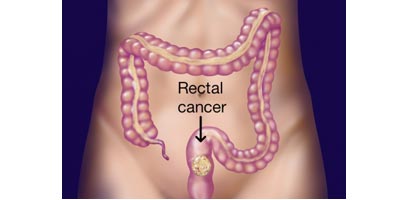
Colon cancer develops in the large intestine (colon), the lower part of your digestive system. Rectal cancer develops in the rectum, which makes up the last several inches of your intestinal tract. Together, they’re referred to as colorectal cancers.
Rectal cancer begins as small clumps of cells called polyps. Although most polyps are noncancerous (benign), some become cancerous over time. Regular screening to find and remove precancerous polyps can prevent rectal cancer from developing. Changes in your diet and lifestyle — such as healthy eating and increasing your physical activity — can help prevent polyps from forming, greatly reducing your risk of rectal cancer.
Rectal cancer often doesn’t cause symptoms in the early stages. The most common signs of the disease include:
Although many rectal cancers develop for reasons that aren’t well understood, certain factors increase your risk, including:
Treatment for rectal cancer varies, depending on how large the tumor has grown, how deeply it has invaded the wall of the rectum, and whether it has spread to the lymph nodes or other organs. Options include:
To book your appointment with a gastro surgeon, please reach out to us on +91 8160650099

